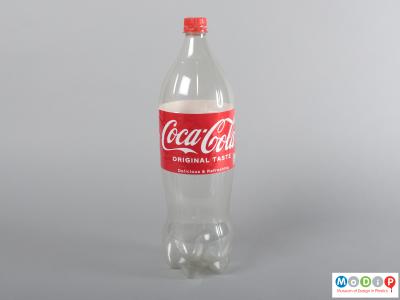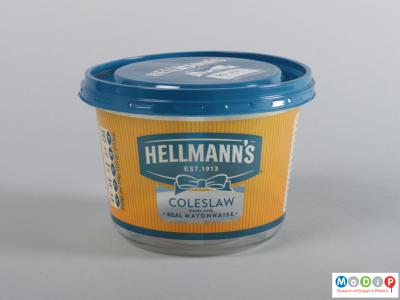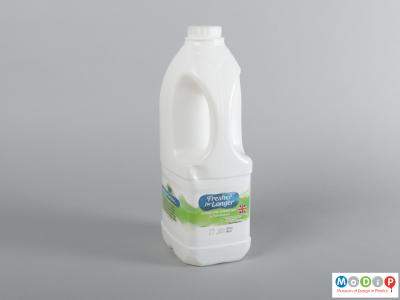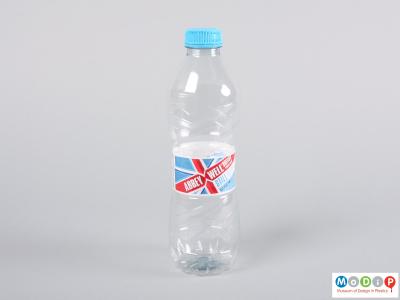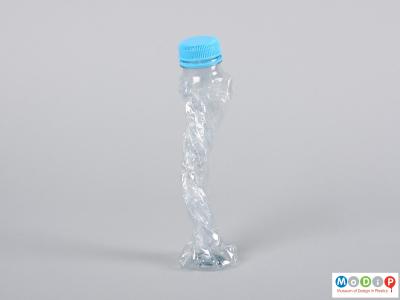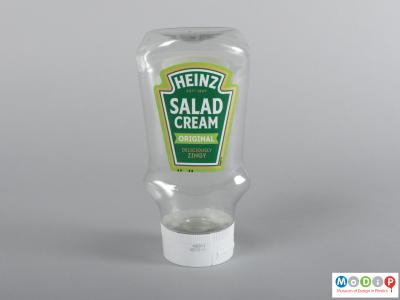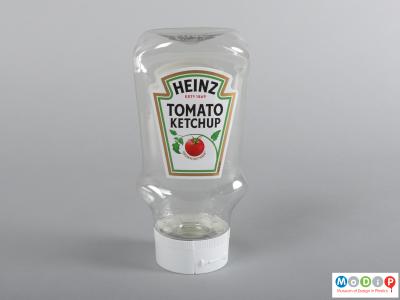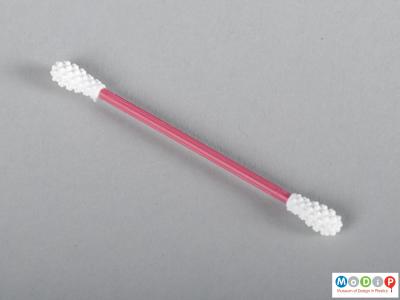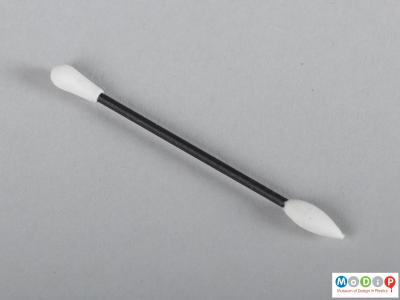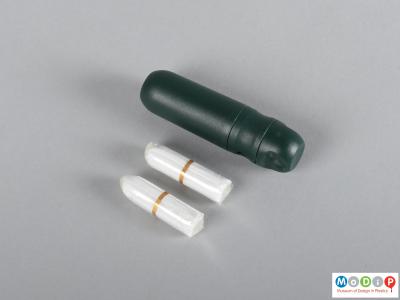Seemingly small changes in product design can have big impacts especially when driven by legislation. One of the statements in the 2019 EU Directive on the reduction of the impact of certain plastic products on the environment aims to ensure that by 2024 all single-use bottles of up to 3 litres have caps and lids that remain attached to the containers during the products intended use stage. Coca-Cola have already started to use bottles (1-2) which utilise the special qualities of polypropylene (PP) to create an integral, living hinge, to help the lid remain attached. This initiative means that the lids are less likely to become lost in the sorting process or get left behind as litter. Similarly, consumers are encouraged to keep film covers attached to the food pots, as in the polyethylene terephthalate (PET) Hellmann's Coleslaw pot (3).
To make it easier to recycle, milk bottle caps were changed in the latter months of 2022 from a variety of colours, indicating the type of milk, to white or clear to match the bottle (4). With both bottle and lid being made of the same material, high density polyethylene (HDPE), and in the same, simple, colour they can be kept together in the recycling system.
To aid material recovery, the Twist bottles (5-6) were designed to be contorted after use to take up less space in the recycling bin. In a bid to make their bottle caps recyclable, Kraft Heinz have designed a lid for a squeezy bottle out of a single material (7), PP. The previous squeezy bottle (8) had the addition of a silicone valve in the PP lid and the combination of materials made it practically impossible to recycle. A new bottle with a thermoplastic elastomer (TPE) closure will soon be available. It took eight years, 45 prototypes and more than 185,000 hours to find a solution where the different materials are easier to separate and recycle.
Since 2021, single-use plastics plates, cutlery, straws, balloon sticks and cotton buds have been banned from EU markets. The UK Government had implemented the same ban the year before. Although paper and card alternatives are used some consumers prefer reusable products such as the LastSwab Basic (9) or Beauty (10), made of made of glass-reinforced PP and a medical grade thermoplastic elastomer (TPE), and the Dame tampon applicator (11) which is made from medical grade Mediprene, a TPE, and medical grade PP.


